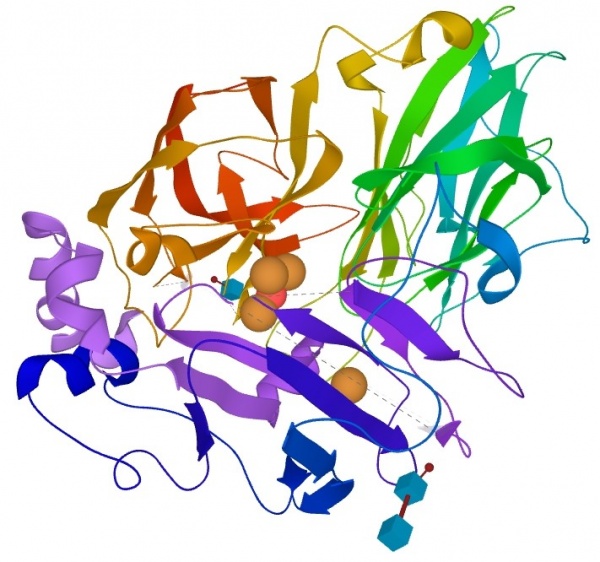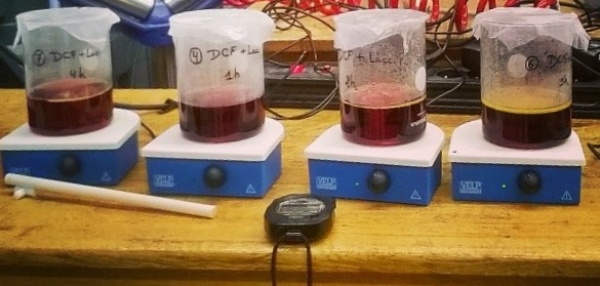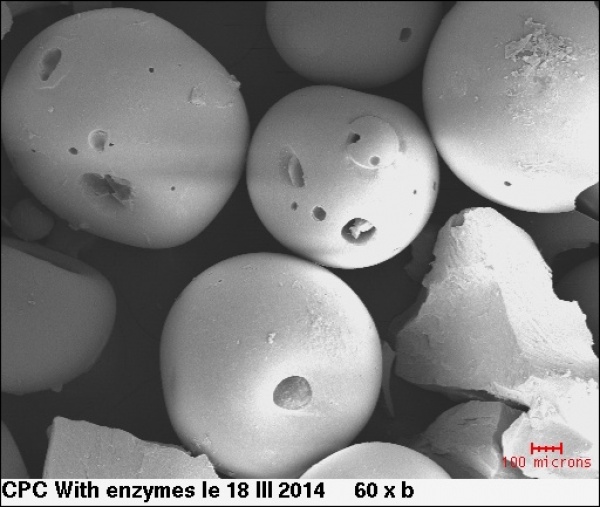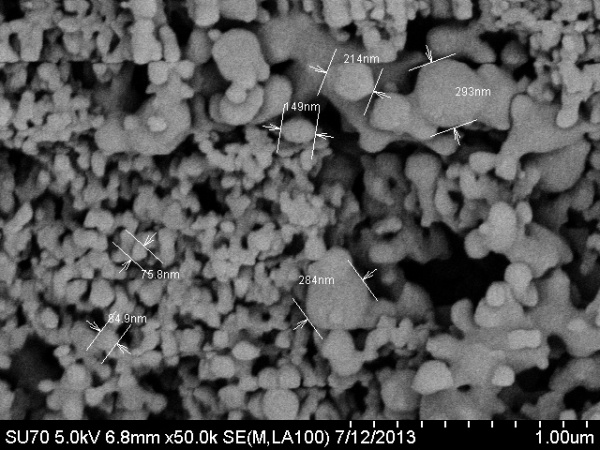
Enzymatic processes
Presentation
Our research relates to the use of enzymes or biocatalysts (enzymes integrated on or in a material) for the development of new processes or the enhancement of existing processes. We mainly focus on the impact on the process of the enzymatic reaction kinetics and of the formulation of the biocatalyst and the enzymatic mix. The specificity of our laboratory lies in the use of phenomenological approaches to describe and integrate the effect of the enzymes on the process. Applications are focused on food processing and environnemental engineering.
In the food sector, enzymes are tested for compound extraction, food preservation, and viscosity control. In the extraction process, for example, enzymatic mixes (amylase, hemicellulase, pectinase…) are studied to replace organic solvent in high added value compound extraction. Typical applications are carotenoids extraction from tomato and gac fruit, and betalaines extraction from prickly pear.
For environmental purposes, lignolytic enzymes, mainly laccases from Coriolopsis gallicaand Trametes versicolor, are used to help enhancing the biodigestibility of biomass wastes, and for the elimination of micropollutants (bisphenol A, diclophenac, oestrogenes, anthraquinone dyes …) from wastewater. In this last topic a specific attention is devoted to understanding and exploiting the difference of degradation mechanisms observed with various pollutants in order to enhance the global treatment. Practical water treatment with immobilized enzymes are tested in fixed bed and fluidized bed reactors.
Contact: Frédéric Debaste
Media
Researchers
-
 Frédéric DebasteProfessorsUniversity professor
Frédéric DebasteProfessorsUniversity professor -
 Salahaldin AbuabdouPost-doctoral researchers
Salahaldin AbuabdouPost-doctoral researchers -
Nhân NguyenPhD studentsARES PhD grant
-
 Constance PadoanPhD studentsF.R.S.-FNRS grant / co-supervision CPBL/TIPs
Constance PadoanPhD studentsF.R.S.-FNRS grant / co-supervision CPBL/TIPs -
 Tazio SiegmannPhD studentsF.R.S.-FNRS grant
Tazio SiegmannPhD studentsF.R.S.-FNRS grant -
 Alice WolperPhD studentsF.R.S.-FNRS grant
Alice WolperPhD studentsF.R.S.-FNRS grant
Selected publications
Debaste, F., Flahaut, S., Penninckx, M., & Songulashvili, G. Using Laccases for Food Preservation, Handbook of Food Bioengineering. Academic Press, 15, 501-541. 2018
Blavier, J., Songulashvili, G., Simon, C., Penninckx, M., Flahaut, S., & Debaste, F. Assessment of methods of detection of water estrogenicity for their use as monitoring tools in a process of estrogenicity removal. Environmental technology, 37(24). 2016
Hautphenne, C., Penninckx, M., & Debaste, F. Product formation from phenolic compounds removal by laccases: A review. Environmental Technology & Innovation, 5, 250-266. 2016
Mai, H.C., Truong, V., & Debaste, F. Optimisation of Enzyme-Assisted Extraction of Oil Rich in Carotenoids from Gac Fruit (Momordica cochinchinensis Spreng). Food Technology and Biotechnology, 51(4), 488-499. 2013
Projects
-
Improvement of anaerobic digestion of solid waste: enzymatic hydrolysis
Bilateral WBI-Tunisie project. PI: Frédéric Debaste
Funded by WBI -
MAIMISVAL project
The general objective of the project is to use woody biomass from the production of maize and miscantus in high added value applications. PI: Frédéric Debaste
Funded by the Walloon Region (DGO3) -
PhD thesis of Tazio Siegmann
PI: Frédéric Debaste
Funded by the FNRS -
PhD thesis of Alice Wolper
PI: Frédéric Debaste
Funded by the FNRS



